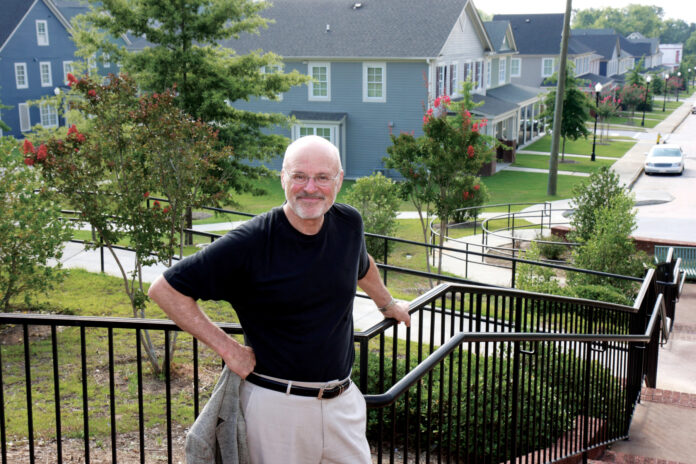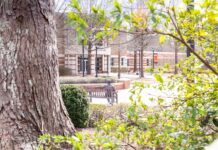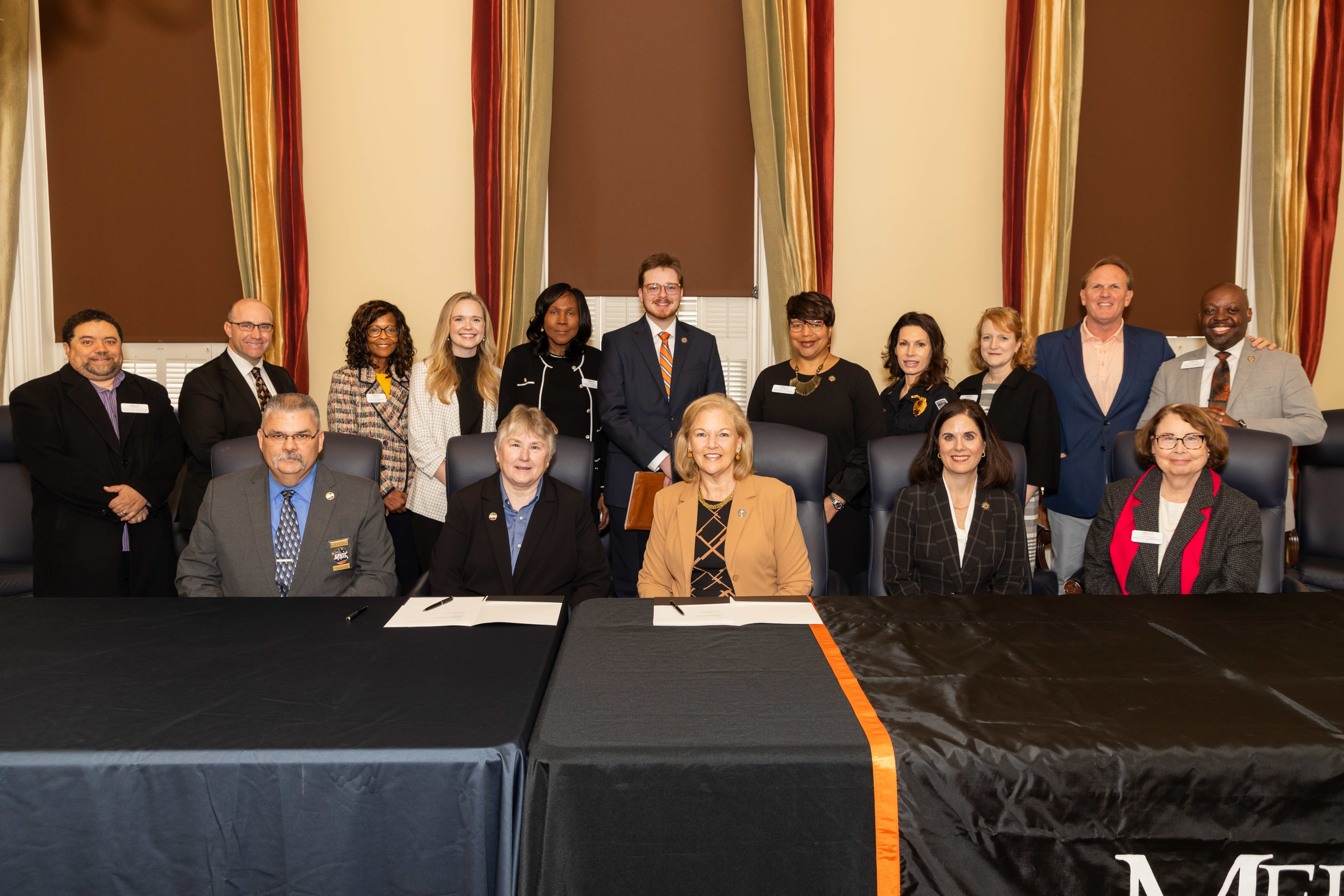Dr. Peter Brown devoted over 40 years of his life to Mercer University and the Macon community. As a philosophy professor and administrator, he spearheaded some of Mercer’s most impactful civic engagement programs, which led to positive social change and improvements to nearby neighborhoods and downtown Macon. Here’s how he became a Mercer Legend.

Dr. Peter Brown
Mercer connection: Former professor of philosophy and interdisciplinary studies and administrator
Years at Mercer: 1971-2014
What he did: Dr. Brown earned his undergraduate degree in philosophy from Rice University and his Ph.D. in religion and literature from Emory University. He came to Mercer in 1971, joining the College of Liberal Arts and Sciences, where he became a leader in developing innovative and multifaceted curricula.
As a philosophy and interdisciplinary studies professor, he believed in providing students with an engaging and transformative education. This led him to establish the University’s successful Great Books program with other Mercer Legends, such as Dr. Joseph “Papa Joe” Hendricks, Tom Trimble, Dr. Michael Cass and Dr. Ted Nordenhaug. He was also instrumental in the formation of what is now the First-Year Seminar Program and Senior Capstone, the latter of which he served as director for 10 years.
In 1998, Dr. Brown was named director of the new Mercer Center for Community Development, which was established to join the University’s resources with those of community and government partners to work with residents to revitalize their neighborhoods. In 2007, he was named senior vice provost, making him responsible for undergraduate curriculum and summer academic programming. In this role, he also provided leadership for cross-college and co-curricular activities. He retired in 2014.
In December 2020, Mercer University Press published Dr. Brown’s book, Listening for God: Malamud, O’Connor, Updike, & Morrison.
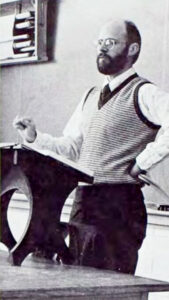
Why he’s a legend: Dr. Brown’s impact is felt not only across the University but also Macon. As director of the Center for Community Development, he worked hand-in-hand with local government, community organizations and residents to improve the neighborhoods surrounding Mercer. In a 2001 column for The Macon Telegraph, Dr. Brown called the forthcoming revitalization of the Beall’s Hill and Oglehthorpe Homes neigborhoods “the most ambitious attempt at social change in the history of Macon.”
Dr. Brown was instrumental in securing multi-million dollar grants for the demolition, rehabilitation and building of houses in Beall’s Hill, as well as the redevelopment of Oglethorpe Homes, a public housing development. The latter grant was awarded to the Macon Housing Authority, buoyed by Mercer’s commitment to funds for development loans, jobs and homebuyer incentives. Dr. Brown emphasized that the center’s long-term commitment sought to motivate change at every level — educational, social, physical and economic.
In addition, one of Dr. Brown’s Senior Capstone classes led to the creation of the College Hill Alliance, which worked to bridge the gap between Mercer, Macon and the downtown business district.
In 2009, Campus Compact, a national coalition committed to fulfilling the civic purposes of higher education, named Dr. Brown a finalist for the Thomas Ehrlich Civically Engaged Faculty Award. He was recognized for his exceptional service-learning, engaged scholarship, and contributions to institutional and community change.
Quotable: “He has devoted most of his long tenure at Mercer to civic engagement. He not only practices it personally, he effectively transmits his passion and energy for community enrichment to students, who multiply the impact here in Macon and, after they graduate, into the communities where they live and serve. Both Mercer and Macon have greatly benefited from his contributions in this arena.” — Mercer President William D. Underwood in 2009
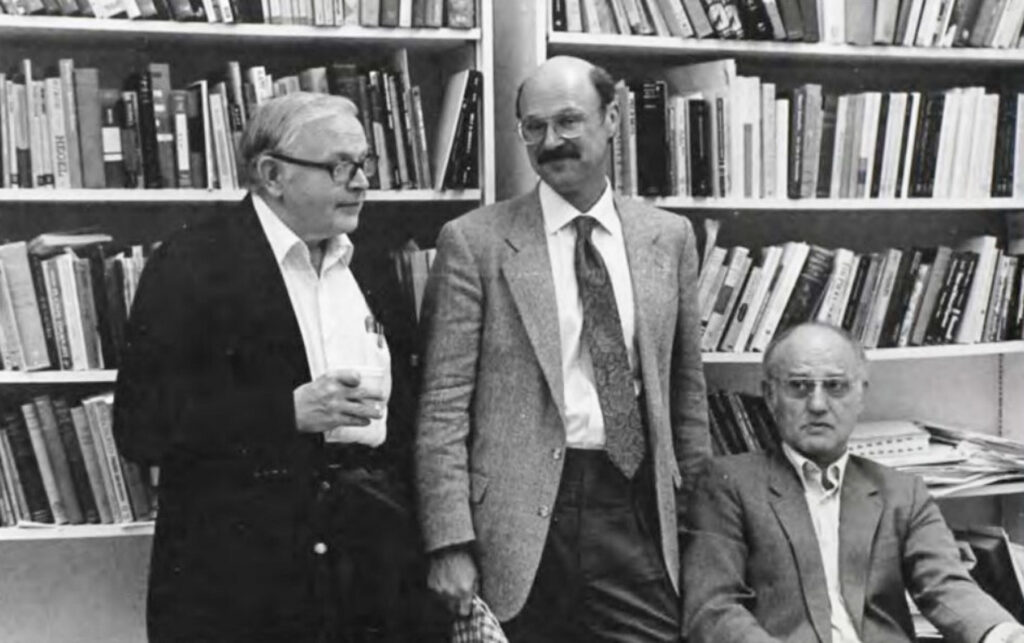
Mercer Legends is a series that highlights iconic figures who left a lasting impact on the University and its faculty, staff and students, as well as the community.

